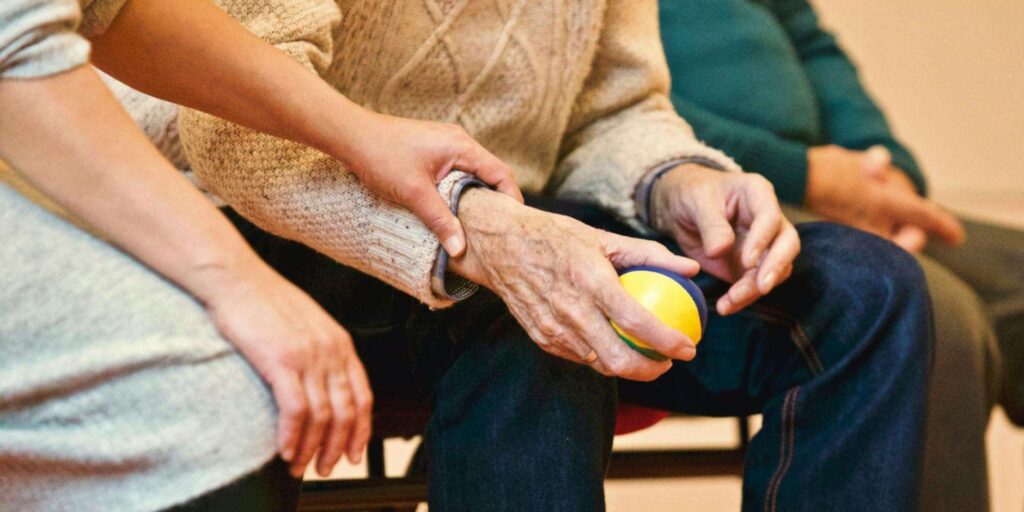Supporting a loved one with an eating disorder can be challenging and emotionally draining. Eating disorders, such as anorexia, bulimia, and binge-eating disorder, are complex mental health conditions that require compassionate and informed care. Understanding how to provide effective support can make a significant difference in your loved one’s recovery journey. This comprehensive guide will walk you through various strategies and tips to support your loved one through this difficult time.

Introduction
Supporting a loved one with an eating disorder can be challenging and emotionally draining. Eating disorders, such as anorexia, bulimia, and binge-eating disorder, are complex mental health conditions that require compassionate and informed care. Understanding how to provide effective support can make a significant difference in your loved one’s recovery journey. This comprehensive guide will walk you through various strategies and tips to support your loved one through this difficult time.
Understanding Eating Disorders
What Are Eating Disorders?
Eating disorders are serious mental health conditions characterized by unhealthy eating habits, preoccupation with body weight, and a distorted body image. Common types include anorexia nervosa, bulimia nervosa, and binge-eating disorder. Each disorder has distinct symptoms and risks but often stems from underlying emotional and psychological issues.
Recognizing the Signs and Symptoms
Recognizing the early signs and symptoms of eating disorders is crucial for timely intervention. These may include drastic weight changes, preoccupation with food and dieting, withdrawal from social activities, and physical symptoms such as fatigue and dizziness.
Causes and Risk Factors
Eating disorders often result from a combination of genetic, biological, behavioral, psychological, and social factors. Common risk factors include a family history of eating disorders, societal pressure to be thin, perfectionism, and traumatic experiences.
How to Approach a Loved One
Choosing the Right Time and Place
When discussing concerns about an eating disorder, choose a private and comfortable setting. Ensure there is enough time to have an uninterrupted conversation without distractions.
Expressing Your Concerns with Empathy
Use “I” statements to express your concerns without sounding accusatory. For example, say, “I’ve noticed you’re skipping meals and I’m worried about you,” rather than, “You’re not eating enough.”
Listening Without Judgment
Encourage your loved one to share their feelings and thoughts. Listen without interrupting or judging, and show empathy and understanding.
Offering Emotional Support
Being Patient and Understanding
Recovery from an eating disorder is a long process that requires patience. Understand that there will be setbacks and challenges along the way.
Encouraging Open Communication
Keep the lines of communication open. Let your loved one know that you are there to talk and provide support whenever they need it.
Providing Reassurance and Positivity
Reassure your loved one that they are not alone and that recovery is possible. Highlight their strengths and celebrate small victories in their journey.
Promoting Healthy Behaviors
Modeling Healthy Eating Habits
Set a positive example by maintaining healthy eating habits yourself. Avoid discussing diets or body image negatively in front of your loved one.
Avoiding Triggers and Negative Comments
Be mindful of comments and behaviors that might trigger negative emotions related to food and body image. Avoid making comments about weight, diet, or appearance.
Encouraging Balanced Activities
Encourage your loved one to engage in activities that promote well-being, such as exercise, hobbies, and social interactions, without focusing on weight loss or body image.
Seeking Professional Help
The Role of Therapists and Counselors
Professional therapists and counselors specializing in eating disorders can provide valuable support and treatment. Encourage your loved one to seek professional help.
Finding the Right Treatment Program
Research and recommend treatment programs and support groups tailored to your loved one’s needs. Consider programs that offer comprehensive care, including medical, nutritional, and psychological support.
Supporting Medical and Nutritional Needs
Ensure your loved one receives proper medical care and nutritional guidance. This may involve working with a team of healthcare professionals, including doctors, dietitians, and therapists.
Building a Support Network
Involving Family and Friends
Encourage other family members and friends to offer support and understanding. A strong support network can provide additional encouragement and resources.
Joining Support Groups
Consider joining support groups for individuals affected by eating disorders. These groups can offer valuable insights, shared experiences, and emotional support.
Utilizing Online Resources
Many online resources and forums provide information and support for those affected by eating disorders. These can be a valuable supplement to professional treatment.
Coping with Your Own Emotions
Understanding Your Limits
Recognize that supporting someone with an eating disorder can be emotionally taxing. It’s important to set boundaries and understand your limits.
Seeking Your Own Support
Consider seeking support for yourself through therapy or support groups. Taking care of your mental health is crucial in being able to support your loved one effectively.
Practicing Self-Care
Engage in self-care activities that help you manage stress and maintain your well-being. This could include hobbies, exercise, meditation, or spending time with friends.
Educating Yourself About Eating Disorders
Reading Books and Articles
Educate yourself by reading books and articles about eating disorders. Understanding the condition can help you provide better support.
Attending Workshops and Seminars
Attend workshops and seminars on eating disorders to learn more about treatment and support strategies.
Consulting Professionals
Seek advice from healthcare professionals specializing in eating disorders to better understand the condition and effective support methods.
FAQs
What are the early signs of an eating disorder?
Early signs include drastic weight changes, preoccupation with food, withdrawal from social activities, and physical symptoms like fatigue.
How can I talk to my loved one about their eating disorder?
Choose a private setting, use “I” statements, express empathy, and listen without judgment.
What should I avoid saying to someone with an eating disorder?
Avoid comments about weight, diet, or appearance, and refrain from making negative or triggering remarks.
How can I encourage my loved one to seek professional help?
Suggest seeking professional help in a supportive manner, provide information about treatment options, and reassure them about the benefits of professional care.
What role do support groups play in recovery?
Support groups provide shared experiences, emotional support, and valuable insights, helping individuals feel less isolated in their recovery journey.
How can I manage my own emotions while supporting a loved one with an eating disorder?
Set boundaries, seek your own support, and engage in self-care activities to maintain your well-being.
Conclusion
Supporting a loved one with an eating disorder requires patience, empathy, and a proactive approach. By understanding the condition, approaching conversations with care, offering emotional support, promoting healthy behaviors, seeking professional help, and educating yourself, you can make a positive impact on their recovery journey. Remember to also take care of your own emotional well-being throughout this process.
Learn about NutriBlooms Services
Post navigation
PreviousPrevious post:Top 10 Weight Loss Myths Debunked by a Professional Dietitian
NextNext post:How to Create a Balanced Diet Plan for Effective Weight Loss



